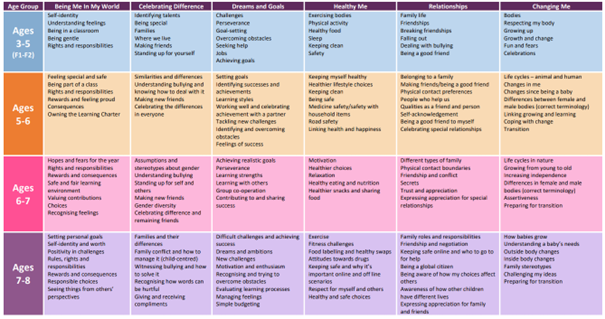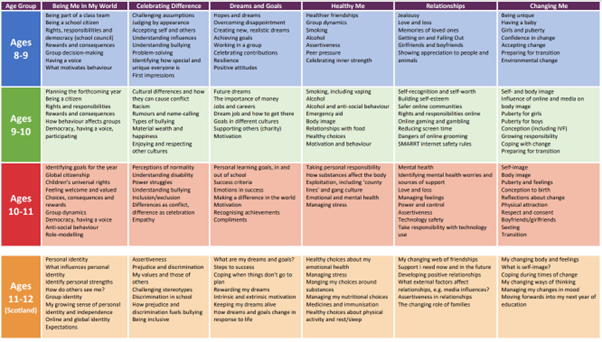Relationships, Sex & Health Education (RSHE)
Sex education might be a difficult subject to handle, but it is an essential area of learning for your child.
Primary school children need information about sex and relationships in a timely fashion, which means, for example, that they should learn about puberty before they experience it.
Lucy Emmerson, coordinator of the Sex Education Forum.
So what can you expect your child to learn and when?
Sex education and the National Curriculum
Under the National Curriculum, the basics of sex education fall within the science curriculum.
Sex education is:
- Human reproduction
- Conception and birth
However, under the National Curriculum, which is statutory, sex education falls within the science
curriculum. The statutory content requires maintained schools to teach children about human
development, including puberty, and reproduction.
- In Key Stage 1, children learn to identify, name, draw and label the basic parts of the human body and say which part of the body is associated with each sense. They learn to notice that animals, including humans, have offspring which grow into adults. They should be introduced to the concepts of reproduction and growth, but not how reproduction occurs.
- In Key Stage 2, children are taught about the life cycles of humans and animals, including reproduction. They also learn about the changes that happen in humans from birth to old age. This includes learning what happens in puberty.
If Sex Education is taught within PSHE lessons (which it is at Fives Spires Academy), parents DO have the right to withdraw children from the lessons. If you wish to withdraw your child, please inform Mrs Raftery in writing. Please note that there is no right to withdraw from Relationships Education or Health Education.
By the end of their time at primary school, children should be taught about the following content (DfE 2019)
Relationship Education
- Families and people who care for me
- Caring friendships
- Respectful friendships
- Online relationships
- Being safe
Health Education
- Mental wellbeing
- Internet safety and harms
- Physical health and fitness
- Healthy eating
- Drugs, alcohol and tobacco
- Health and prevention
- Basic First Aid
- Changing adolescent body (Puberty)*
** NB: Puberty has been introduced from Year 3 as National Data has revealed that more children are entering puberty from the age of 7 and 8.
From 2020, all state primary schools in England are legally required to teach children about relationships and health education.
What approach does Five Spires Academy use?
Five Spires has chosen to use the Jigsaw Programme to deliver high quality PSHE and RSHE to your children. This is a graduated, age-appropriate programme that also has a strong focus on emotional and mental health and wellbeing. The Jigsaw approach is specifically tailored to the emotional and physical development of the children.
Each lesson will follow the ethos of our Jigsaw charter, this will apply to adults and children in every lesson. Children are familiar with this charter as we use it as part of our Behaviour Policy in school.
What We Teach & When - Curriculum Overview


More Information & useful resources
For more information or any questions, you may have about RSHE please speak to: Mrs Downie (RSHE Lead), Mrs Motorny or Mrs Raftery.
Please find enclosed a selection of further resources for information:
RSHE - A Guide for Parents & Carers (Jigsaw) Jigsaw A Guide for Parents & Carers LeafletLQBTQ Parent Leaflet (Jigsaw)Parent Information (Jigsaw) - PowerPoint (pdf)Relationships, Health and Sex Education Policy (FSA)



